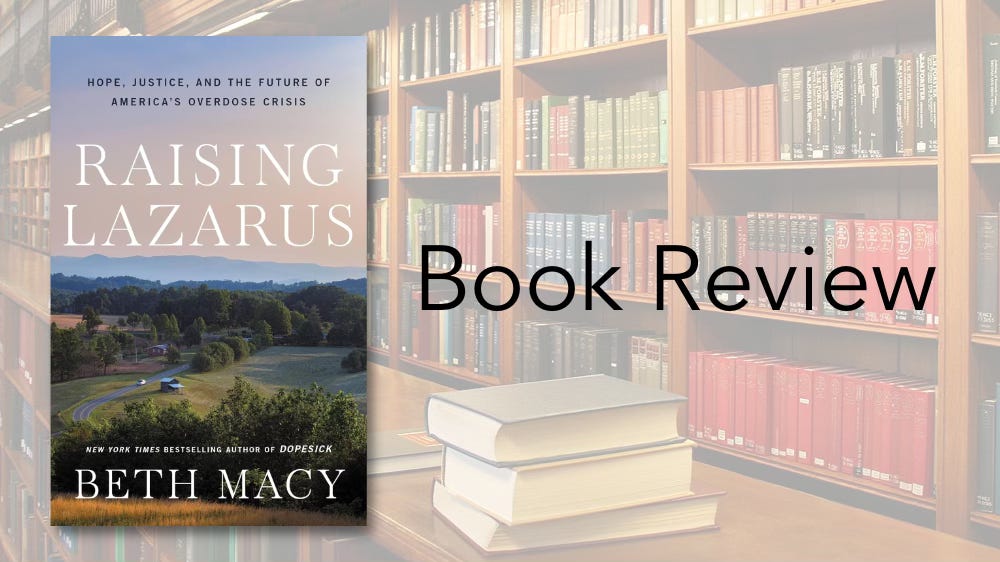Book Review: Raising Lazarus: Hope, Justice and the Future of America's Overdose Crisis
With a book titled Raising Lazarus, you would think Beth Macy would highlight the main point of that biblical passage in John 12:
Jesus said to her, “I am the resurrection and the life. The one who be…



